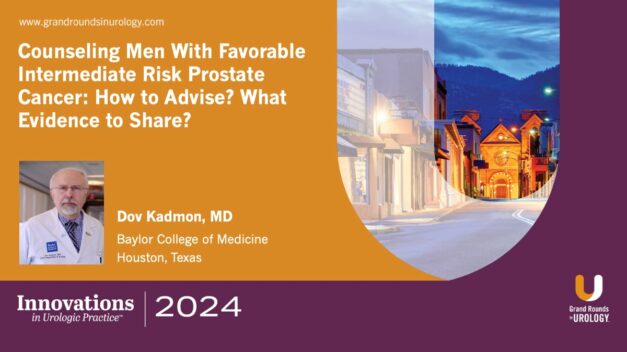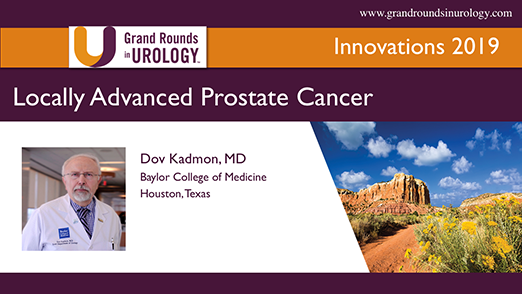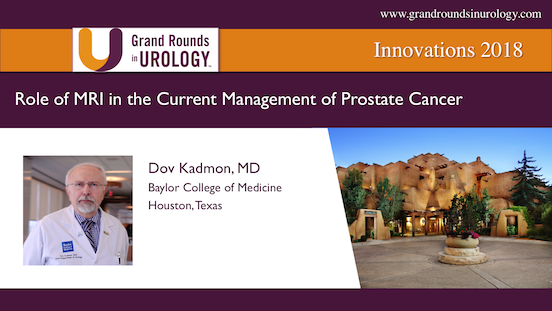Counseling Men with Favorable Intermediate Risk Disease- How to Advise, What Evidence Do You Share?
Dov Kadmon, MD, provides a comprehensive overview of managing favorable intermediate-risk prostate cancer, focusing on patient counseling, treatment decisions, and long-term outcomes.
In this 21-minute presentation, Dr. Kadmon begins by defining favorable intermediate-risk prostate cancer as grade group 2 (Gleason 3+4), with PSA levels under 10 and limited tumor burden based on biopsy. Patients are reassured that this type of cancer is common, typically indolent, and confined to the prostate, with a slow doubling time of three to five years, allowing a broad window for therapeutic intervention.
The discussion then shifts to treatment options, emphasizing the choice between active surveillance and curative interventions like radical prostatectomy or radiation therapy. Surgery’s side effects, including urinary incontinence and erectile dysfunction, are acknowledged. Radiation therapy, while sparing immediate surgery, carries risks of chronic toxicity.
Dr. Kadmon shares insights from the UK-based ProtecT trial, comparing active monitoring, surgery, and radiation therapy. The trial shows similar overall survival rates across treatment arms, but highlights increased rates of metastasis and disease progression in the active monitoring group. He underscores that while surveillance may be appropriate for select patients, curative treatment offers a more definitive approach, especially in younger individuals or those with a longer life expectancy.
Read More


